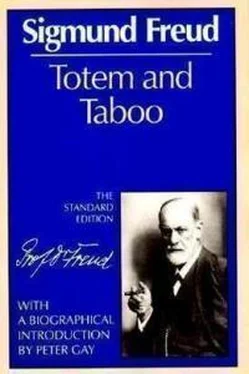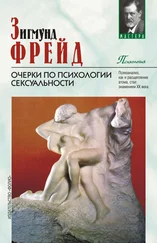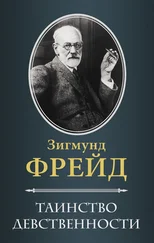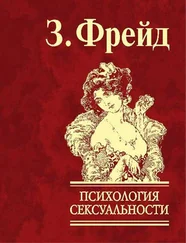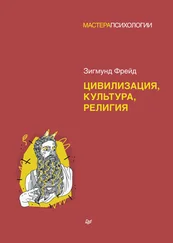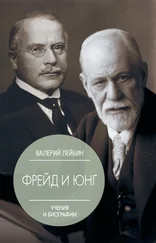Зигмунд Фрейд - Totem and Taboo
Здесь есть возможность читать онлайн «Зигмунд Фрейд - Totem and Taboo» весь текст электронной книги совершенно бесплатно (целиком полную версию без сокращений). В некоторых случаях можно слушать аудио, скачать через торрент в формате fb2 и присутствует краткое содержание. Год выпуска: 2014, Издательство: epubBooks Classics, Жанр: Психология, на английском языке. Описание произведения, (предисловие) а так же отзывы посетителей доступны на портале библиотеки ЛибКат.
- Название:Totem and Taboo
- Автор:
- Издательство:epubBooks Classics
- Жанр:
- Год:2014
- ISBN:нет данных
- Рейтинг книги:3 / 5. Голосов: 1
-
Избранное:Добавить в избранное
- Отзывы:
-
Ваша оценка:
- 60
- 1
- 2
- 3
- 4
- 5
Totem and Taboo: краткое содержание, описание и аннотация
Предлагаем к чтению аннотацию, описание, краткое содержание или предисловие (зависит от того, что написал сам автор книги «Totem and Taboo»). Если вы не нашли необходимую информацию о книге — напишите в комментариях, мы постараемся отыскать её.
Totem and Taboo — читать онлайн бесплатно полную книгу (весь текст) целиком
Ниже представлен текст книги, разбитый по страницам. Система сохранения места последней прочитанной страницы, позволяет с удобством читать онлайн бесплатно книгу «Totem and Taboo», без необходимости каждый раз заново искать на чём Вы остановились. Поставьте закладку, и сможете в любой момент перейти на страницу, на которой закончили чтение.
Интервал:
Закладка:
We are inclined to give the following explanation of the complicated and contradictory relation of the primitive peoples to their rulers. Through superstition as well as through other motives, various tendencies find expression in the treatment of kings, each of which is developed to the extreme without regard to the other. As a result of this, contradictions arise at which the intellect of savages takes no more offence than a highly civilized person would as long as it is only a question of religious matters or of ‘loyalty’.
That would be so far so good; but the psychoanalytic technique may enable us to penetrate more deeply into the matter and to add something about the nature of these various tendencies. If we subject the facts as stated to analysis, just as if they formed the symptoms of a neurosis, our first attention would be directed to the excess of anxious worry which is said to be the cause of the taboo ceremonial. The occurrence of such excessive tenderness is very common in the neurosis and especially in the compulsion neurosis upon which we are drawing primarily for our comparison. We now thoroughly understand the origin of this tenderness. It occurs wherever, besides the predominant tenderness, there exists a contrary but unconscious stream of hostility, that is to say, wherever the typical case of an ambivalent affective attitude is realized. The hostility is then cried down by an excessive increase of tenderness which is expressed as anxiety and becomes compulsive because otherwise it would not suffice for its task of keeping the unconscious opposition in a state of repression. Every psychoanalyst knows how infallibly this anxious excess of tenderness can be resolved even under the most improbable circumstances, as for instance, when it appears between mother and child, or in the case of affectionate married people. Applied to the treatment of privileged persons this theory of an ambivalent feeling would reveal that their veneration, their very deification, is opposed in the unconscious by an intense hostile tendency, so that, as we had expected, the situation of an ambivalent feeling is here realized. The distrust which certainly seems to contribute to the motivation of the royal taboo, would be another direct manifestation of the same unconscious hostility. Indeed the ultimate issues of this conflict show such a diversity among different races that we would not be at a loss for examples in which the proof of such hostility would be much easier. We learn from Frazer [65] l.c. , p. 18. According to Zwefel et Monstier, Voyage aux Sources du Niger , 1880.
that the savage Timmes of Sierra Leone reserve the right to administer a beating to their elected king on the evening before his coronation, and that they make use of this constitutional right with such thoroughness that the unhappy ruler sometimes does not long survive his accession to the throne; for this reason the leaders of the race have made it a rule to elect some man against whom they have a particular grudge. Nevertheless, even in such glaring cases the hostility is not acknowledged as such, but is expressed as if it were a ceremonial.
Another trait in the attitude of primitive races towards their rulers recalls a mechanism which is universally present in mental disturbances, and is openly revealed in the so–called delusions of persecution. Here the importance of a particular person is extraordinarily heightened and his omnipotence is raised to the improbable in order to make it easier to attribute to him the responsibility for everything painful which happens to the patient. Savages really do not act differently towards their rulers when they ascribe to them power over rain and shine, wind and weather, and then dethrone or kill them because nature has disappointed their expectation of a good hunt or a ripe harvest. The prototype which the paranoiac reconstructs in his persecution mania, is found in the relation of the child to its father. Such omnipotence is regularly attributed to the father in the imagination of the son, and distrust of the father has been shown to be intimately connected with the highest esteem for him. When a paranoiac names a person of his acquaintance as his ‘persecutor’, he thereby elevates him to the paternal succession and brings him under conditions which enable him to make him responsible for all the misfortune which he experiences. Thus this second analogy between the savage and the neurotic may allow us to surmise how much in the relation of the savage to his ruler arises from the infantile attitude of the child to its father.
But the strongest support for our point of view, which seeks to compare taboo prohibitions with neurotic symptoms, is to be found in the taboo ceremonial itself, the significance of which for the status of kinship has already been the subject of our previous discussion. This ceremonial unmistakably reveals its double meaning and its origin from ambivalent tendencies if only we are willing to assume that the effects it produces are those which it intended from the very beginning. It not only distinguishes kings and elevates them above all ordinary mortals, but it also makes their life a torture and an unbearable burden and forces them into a thraldom which is far worse than that of their subjects. It would thus be the correct counterpart to the compulsive action of the neurosis, in which the suppressed impulse and the impulse which suppresses it meet in mutual and simultaneous satisfaction. The compulsive action is nominally a protection against the forbidden action; but we would say that actually it is a repetition of what is forbidden. The word ‘nominally’ is here applied to the conscious whereas the word ‘actually’ applies to the unconscious instance of the psychic life. Thus also the taboo ceremonial of kings is nominally an expression of the highest veneration and a means of guarding them; actually it is the punishment for their elevation, the revenge which their subjects take upon them. The experiences which Cervantes makes Sancho Panza undergo as governor on his island have evidently made him recognize this interpretation of courtly ceremonial as the only correct one. It is very possible that this point would be corroborated if we could induce kings and rulers of to–day to express themselves on this point.
Why the emotional attitude towards rulers should contain such a strong unconscious share of hostility is a very interesting problem which, however, exceeds the scope of this book. We have already referred to the infantile father–complex; we may add that an investigation of the early history of kingship would bring the decisive explanations. Frazer has an impressive discussion of the theory that the first kings were strangers who, after a short reign, were destined to be sacrificed at solemn festivals as representatives of the deity; but Frazer himself does not consider his facts altogether convincing [66] Frazer, The Magic Art and the Evolution of Kings , 2 vols., 1911 ( The Golden Bough ).
. Christian myths are said to have been still influenced by the after–effects of this evolution of kings.
( C ) THE TABOO OF THE DEAD
We know that the dead are mighty rulers: we may be surprised to learn that they are regarded as enemies.
Among most primitive people the taboo of the dead displays, if we may keep to our infection analogy, a peculiar virulence. It manifests itself in the first place, in the consequences which result from contact with the dead, and in the treatment of the mourners for the dead. Among the Maori any one who had touched a corpse or who had taken part in its interment, became extremely unclean and was almost cut off from intercourse with his fellow beings; he was, as we say, boycotted. He could not enter a house, or approach persons or objects without infecting them with the same properties. He could not even touch his food with his own hands, which were now unclean and therefore quite useless to him. His food was put on the ground and he had no alternative except to seize it as best he could, with his lips and teeth, while he held his hands behind on his back. Occasionally he could be fed by another person who helped him to his food with outstretched arms so as not to touch the unfortunate one himself, but this assistant was then in turn subjected to almost equally oppressive restrictions. Almost every village contained some altogether disreputable individual, ostracized by society, whose wretched existence depended upon people’s charity. This creature alone was allowed within arm’s length of a person who had fulfilled the last duty towards the deceased. But as soon as the period of segregation was over and the person rendered unclean through the corpse could again mingle with his fellow–beings, all the dishes which he had used during the dangerous period were broken and all his clothing was thrown away.
Читать дальшеИнтервал:
Закладка:
Похожие книги на «Totem and Taboo»
Представляем Вашему вниманию похожие книги на «Totem and Taboo» списком для выбора. Мы отобрали схожую по названию и смыслу литературу в надежде предоставить читателям больше вариантов отыскать новые, интересные, ещё непрочитанные произведения.
Обсуждение, отзывы о книге «Totem and Taboo» и просто собственные мнения читателей. Оставьте ваши комментарии, напишите, что Вы думаете о произведении, его смысле или главных героях. Укажите что конкретно понравилось, а что нет, и почему Вы так считаете.
